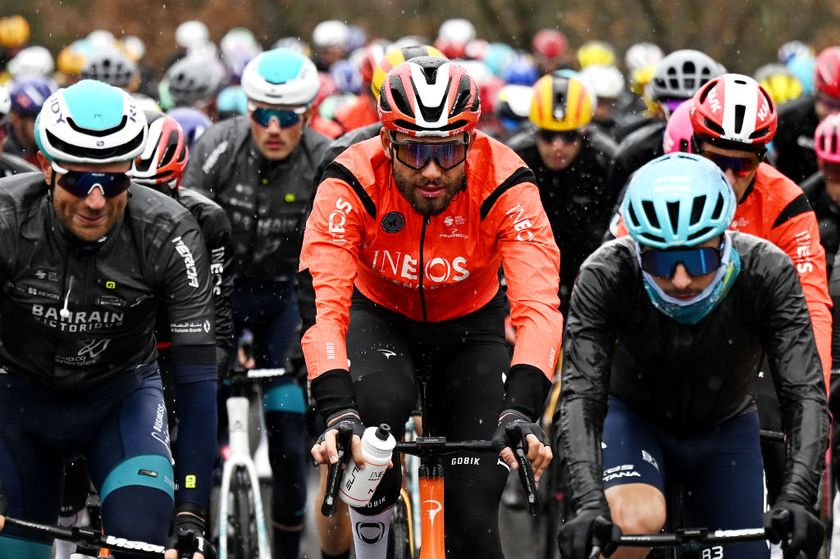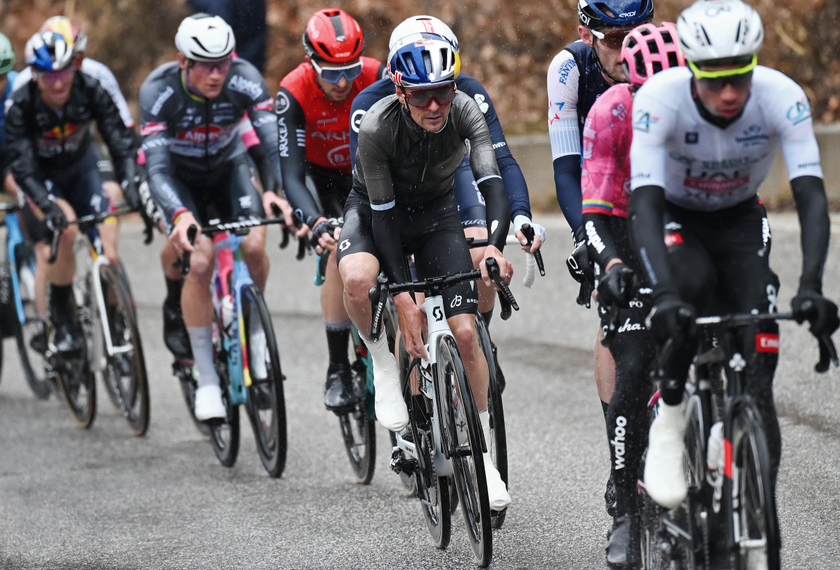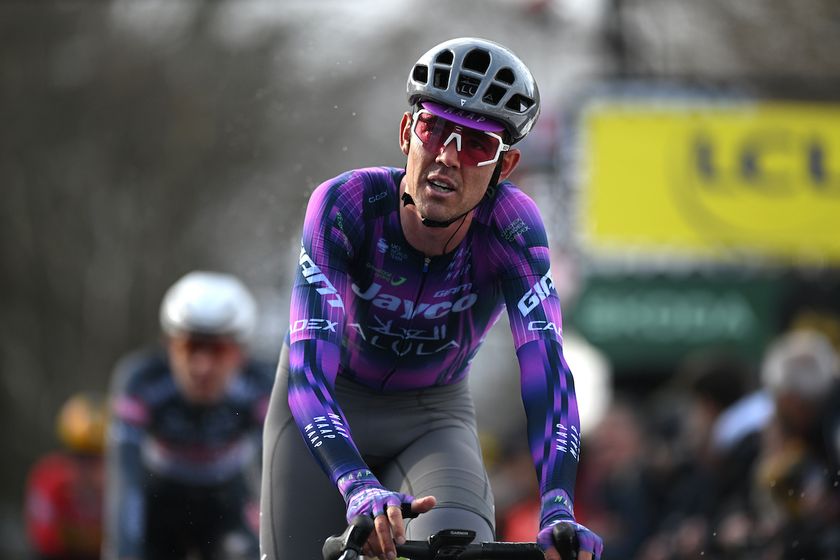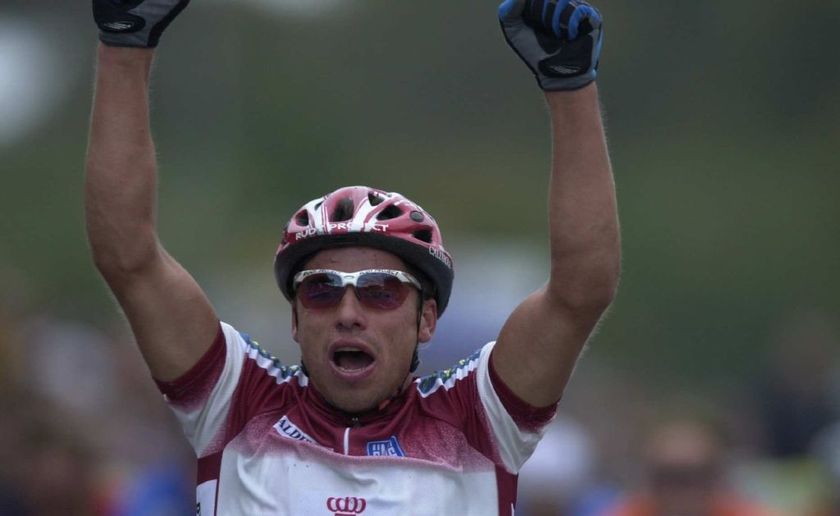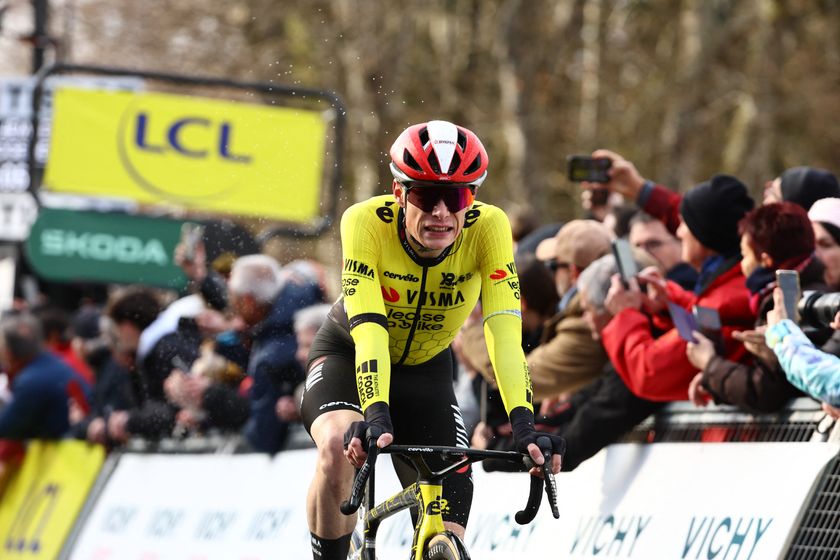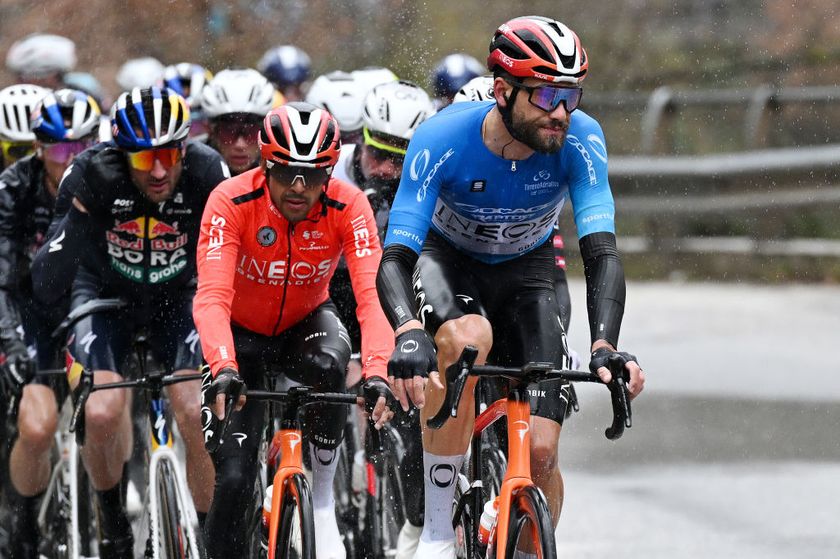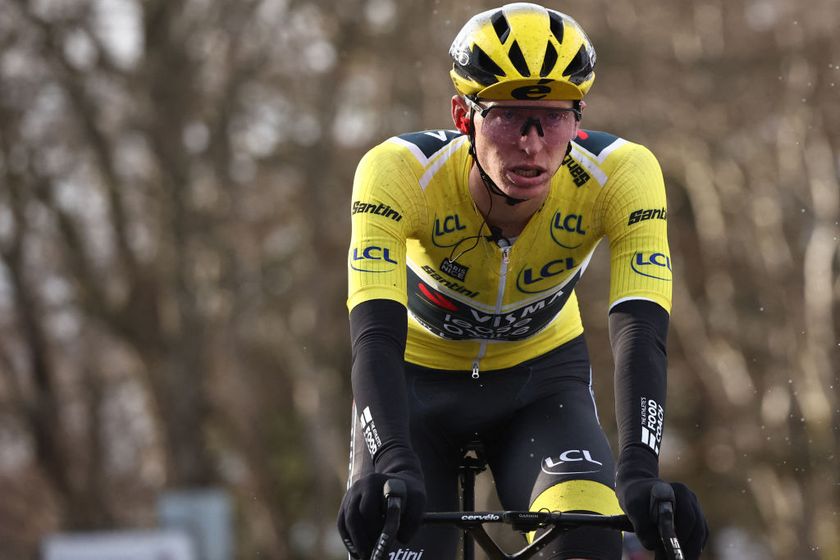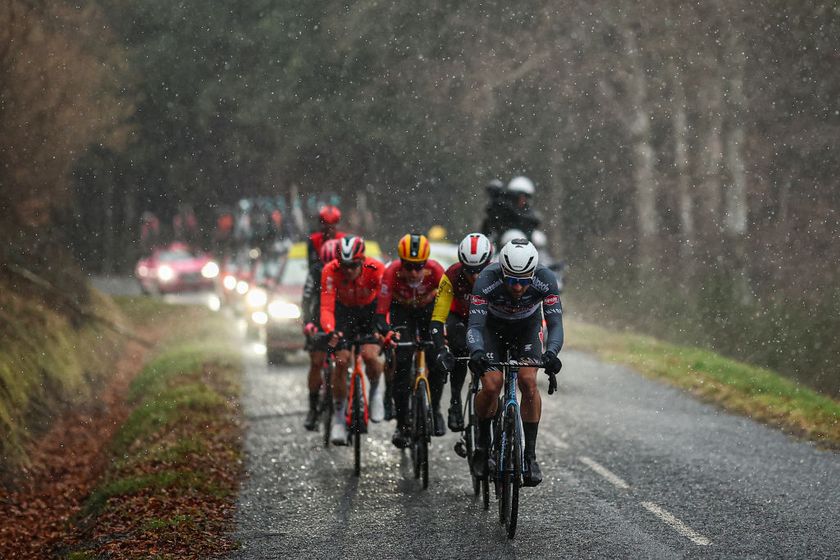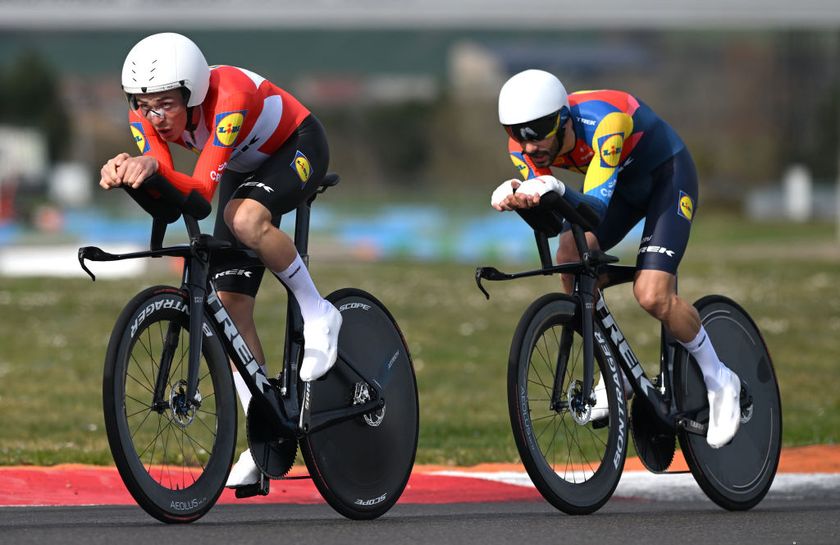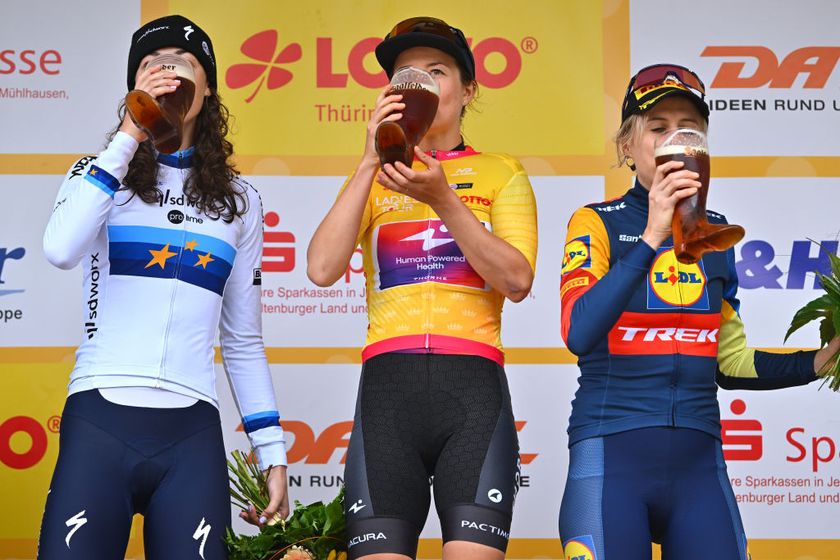Vuelta a Espana: 'I needed a win so I took my day,' says Mikel Landa
The winner of this year's toughest Vuelta stage says he seized his own chance without team orders





Possibly the most expressive gesture from Mikel Landa's spectacular stage victory on Wednesday was not when he raised his arms in victory, but when, some 400 metres from the line, Landa put his radio earpiece back in place.
The Basque climber admitted to Spanish television afterwards he had seized his own chance to go for the win. He apparently took that option rather than follow any Astana team orders that might have been radioed through. Given teammate Fabio Aru was chasing behind on the same climb and with the overall lead at stake, it arguably might have made for sense for Landa to wait and work for Aru.
The potential issue of what strategy Astana would adopt in the Vuelta with Landa and his teammates had taken root when Fabio Aru gained traction during the 2015 Giro d'Italia, where Landa's overall options and Aru's appeared at times to conflict. The Italian finally finished second overall and Landa, after taking two mountain top stages in the third week and launching a devastating mountain attack on the second-to-last day, completed the Giro in third.
Asked by Spanish television if he had been given freedom by his team to race as he wanted on the Vuelta stage or whether he took it for himself, Landa - set to leave Astana at the end of the season - said simply, "I took it [my freedom]."
"I decided to go for it. I needed a win so I took my day. I had this day marked down as possible, that’s why I was looking for the break."
Landa had lost nearly 14 minutes on Sunday's stage finish at Cumbre del Sol. At that point he said categorically that Astana's leader for the Vuelta was Aru and Aru alone.
However, Landa's condition improved enough after Tuesday's rest day to enable the Spaniard to make it into the stage 11 day-long break - then attack nine kilometres from the finish of what was widely seen as the toughest Vuelta stage on record.
Get The Leadout Newsletter
The latest race content, interviews, features, reviews and expert buying guides, direct to your inbox!
"Three days ago, I lost all options overall, I needed this," he said afterwards. "The difference was today I enjoyed riding my bike.
"The last part of the climb was very hard, but I'm very happy," said Landa, who completed the stage 1:22 ahead of teammate Aru. "When it got to five kilometres to go, I thought I could make it. But the last three kilometres were the toughest of my career."
He had been nervous, he admitted, because a group of favourites was steadily closing the gap behind, and as he saw it, "Astana" - his own team - "were driving hard, and I didn't want such a small advantage."
Finally Astana came away with first and second on the stage and the overall lead. The Basque climber recognised that from now on, his race would centre on helping Fabio Aru get to Madrid in the leader's jersey.
As Landa said afterwards, "I hope he can keep the lead all the way to the finish."
Alasdair Fotheringham has been reporting on cycling since 1991. He has covered every Tour de France since 1992 bar one, as well as numerous other bike races of all shapes and sizes, ranging from the Olympic Games in 2008 to the now sadly defunct Subida a Urkiola hill climb in Spain. As well as working for Cyclingnews, he has also written for The Independent, The Guardian, ProCycling, The Express and Reuters.
